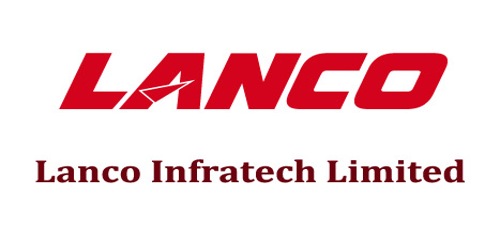ISLAMIC BANKING CONCEPT, OBJECTIVES & BASIC FEATURES
WHAT IS ISLAMIC BANKING?
Definition:
Islamic banking has been defined in a number of ways. The definition of Islamic bank approved by the General Secretarial of the OIC is staled in the following manner. “An Islamic bank is a financial institution whose status, rules and procedures expressly state commitment to the principle of Islamic Shariah and to the banning of the receipt and payment of interest on any of its operations.” Dr Shawki Ismail Shehta viewing the concept from perspective of an Islamic economy and the prospective role to be played by an Islamic bank therein opines that “It is therefore, natural and, indeed, imperative for an Islamic bank incorporate in its functions and practices commercial investment and social activities, an institution design to promote the civilized mission of an Islamic economy.” Dr. Ziaul Ahmed says, “Islamic banking is essentially a normative concept and could be define conduct of banking in consonance will the ethos of the value system of Islam.”
It appears from the above definitions that Islamic banking is a system of financial intermediation that avoids receipt and payment of interest in its transactions and conducting operations in a way that it helps achieving the objectives of an Islamic economy. Alternatively, this is a banking system whose operation is based on Islamic principle transactions of which profit and loss sharing (PLS) is a major feature ensuring justice equity in an economy. That is why Islamic banks are often known as PLS-banks.
Theoretical Basis of the Concept of Islamic Banking:
Conventional banking is essentially based on debtor-creditor relationship between depositors and the bank in the one hand and between the borrowers and the bank on the interest is considered as the price of credit, reflecting the opportunity cost of money. Islam, on the other hand, considers loan to be given or taken, free of charge, to meet contingency and that the creditor should not lake any advantage of the borrower. The money is lent out on the basis of interest, more often it happens that it leads to some kind of injustice. The first Islamic principle underlying such kinds of transactions is that “deal not unjustly and ye shall not be dealt with unjustly”. Hence, commercial banking in an Islamic framework is not based on debtor-creditor relationship.
The second principle regarding financial transactions in Islam is that there should not be any reward without risk-taking. This principle is applicable both to labor and capital. As no payment is allowed to labor unless it is applied to work, no reward for capital should be allowed unless it is exposed to business risks.
Thus, financial intermediation in an Islamic framework has been visualized on the basis of the above principles. Consequently financial relationships in Islam have been participatory in nature. Several theorists suggest that commercial banking in an interest-free system should be organized on the principle of profit and loss sharing. The institution of interest is thus replaced by a principle of participation in profit and loss. That means, a fixed rate of interest is replaced by a variable rate of return based on real economic activities. The distinct characteristics which provide Islamic banking with its main points of departure from the traditional interest-based commercial banking system are: (a) the Islamic banking system is essentially a profit and loss sharing system and not merely an interest-free (Riba) banking system; and (b) investment (loans and advances in conventional sense) under this system of banking must serve simultaneously both the interest of the investor and those of the local community. The financial relationship as pointed above is referred to in Islamic jurisprudence as Mudarabah.
Distinguishing Features of Islamic Banking:
An Islamic bank has several distinctive features as compared to its conventional counterpart. Six essential differences as below:
- I. Abolition of Interest (Riba): Since Riba is prohibited in the Holy Quran and interest in all its form being akin to Riba as, confirmed by Fukaha and Muslim economists with rare exceptions, the first distinguishing feature of an Islamic bank must be that it is interest-free, while the abolition of Riba would be the first and essential difference between the conventional interest-based commercial banks and Islamic banks, if would not the constitute the only difference between them. The nature, outlook and operations of an Islamic bank would have to undergo a complete transaction.
- II. Adherence to Public Interest: Activity of commercial banks being primarily based on the use of public funds, public interest rather than individual or group interest will be served by Islamic commercial banks. The Islamic banks should use all deposits, which come from the public for serving public interest and realizing the relevant socio-economic goals of Islam. They should play a goal-oriented rather than merely a profit-maximizing role and should adjust themselves to the different needs of the Islamic economy.
- III. Multi-Purpose Bank: Another substantial distinguishing feature is that Islamic banks will be universal or multi-purpose banks and not purely commercial banks. These banks are conceived to be a crossbreed of commercial and investment banks, investment trusts and investment management institutions and would offer a variety of services to their customers. A substantial part of their financing would be for specific projects or ventures. Their equity-oriented investments could not permit them to borrow short and lend long. This should tend to make them less crisis-prone compared to their capitalist counterparts. Since the overnight, call loan or very short-term inter-bank market may be available to them only to a limited extent, they may have to make a greater effort to match the maturity of their liabilities with the maturity of their assets.
- IV. More Careful Evaluation of Investment Demand: Another very important feature of an Islamic bank is its very careful attitude towards evaluation of applications for equity oriented financing. It is customary that conventional banks evaluate applications, considers collateral and avoids risks as far as possible. Their main concern does not go beyond ensuring the security of their principle and interest receipts. Since the Islamic bank has in built mechanism of risk-sharing, it would need to be careful more careful. It adds a healthy dimension in the whole lending business and eliminates a whole range of undesirable lending practices.
- V. Work as Catalyst of Development: Profit-Loss-Sharing being a distinctive characteristic of an Islamic bank, if fosters closer relations between banks and entrepreneurs. It helps develop financial expertise in non-financial firms also enables the banks to assume the role technical consultants and financial advisors and act as catalysts in the process of industrialization and development. The bank would take care of all the responsible and agreed financial needs of their clients thus relieving them of the need to run around for funds to overcome their normal liquidity shortages.
Objectives of Islamic Banking:
The primary objective of establishing Islamic bank all over the world is to promote, foster and develop the application of Islamic principles, law and tradition to the transaction of financial, banking and related business affairs and to promote investment companies, enterprises and concerns which shall themselves be engaged in business as are acceptable and consistent with Islamic principles, law and traditions. But the objective of Islamic bank when viewed from the context of its role in an economy, its specific objectives may be enlisted as following:
- To offer contemporary financial services in conformity with Islamic Shariah;
- To contribute towards economic development and prosperity within the principles of Islamic justice;
- To facilitate efficient allocation of resources;
- To help achieving stability in the economy;
Offer Financial Services:
Interest-based banking considered to be practicing riba in financial transaction has
Islamic banking is clearly meant for creation of provision for Shariah approved financial transactions.
Islamic Banking for Development:
Islamic banking is claimed to be more development oriented than its conventional counterpart. The mechanism of Profit-Sharing is build-in development promoter since it establishes a direct relationship between the benefit of the bank and the entrepreneurs.
Optimum Allocation of Recourses:
Another important objective of Islamic banking is the optimum allocation resources. The basic mechanism of Islamic banking system is such that financial resources are allocated to projects which are considered to be more profitable.
The means, in the case of Islamic banking profitability of projects works as deciding factor as to where the financial resources will go and to what extent.
Islamic Banking for Equitable Distribution of Resources:
Another important objective of Islamic banking is to ensure equitable distribution of income and resources among the participating factors: the bank, the depositors and the entrepreneurs. This is done through its built-in mechanical arrangement as well as other welfare activities pursued through Zakah fund.
















